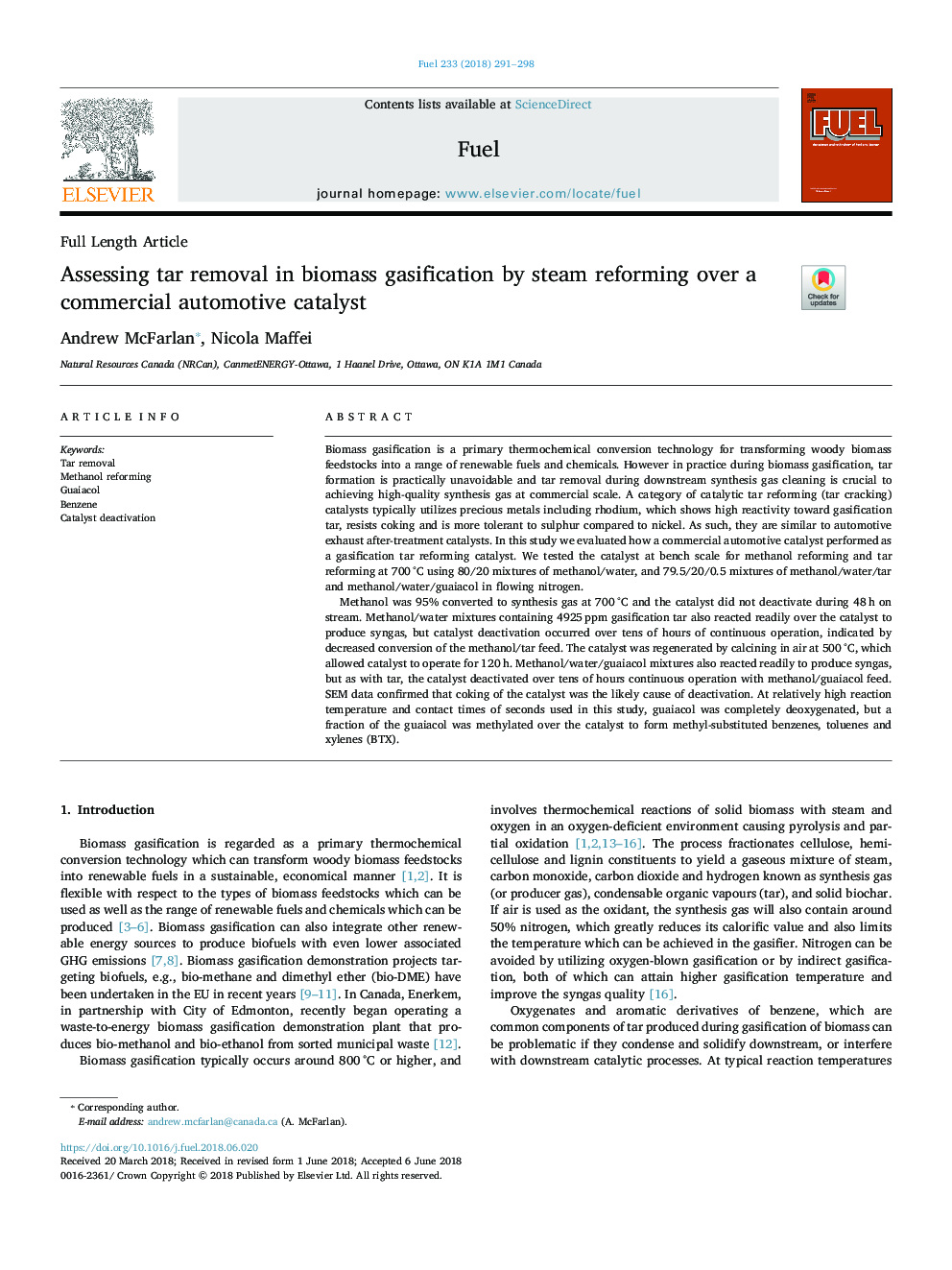| Article ID | Journal | Published Year | Pages | File Type |
|---|---|---|---|---|
| 6630213 | Fuel | 2018 | 8 Pages |
Abstract
Methanol was 95% converted to synthesis gas at 700â¯Â°C and the catalyst did not deactivate during 48â¯h on stream. Methanol/water mixtures containing 4925â¯ppm gasification tar also reacted readily over the catalyst to produce syngas, but catalyst deactivation occurred over tens of hours of continuous operation, indicated by decreased conversion of the methanol/tar feed. The catalyst was regenerated by calcining in air at 500â¯Â°C, which allowed catalyst to operate for 120â¯h. Methanol/water/guaiacol mixtures also reacted readily to produce syngas, but as with tar, the catalyst deactivated over tens of hours continuous operation with methanol/guaiacol feed. SEM data confirmed that coking of the catalyst was the likely cause of deactivation. At relatively high reaction temperature and contact times of seconds used in this study, guaiacol was completely deoxygenated, but a fraction of the guaiacol was methylated over the catalyst to form methyl-substituted benzenes, toluenes and xylenes (BTX).
Related Topics
Physical Sciences and Engineering
Chemical Engineering
Chemical Engineering (General)
Authors
Andrew McFarlan, Nicola Maffei,
